For thousands of years, ghee has been used in everything from lamp fuel to healing ointments. It has also long been a staple in kitchens from around the world. In India, ghee stands behind only wheat and rice as dietary staples. A big part of the reason ghee was and is used so eponymously in India: the hot weather. Southern India and other tropical areas where use ghee simply because it stands up to the heat. While butter is near universal, ghee evolved in regions where it made sense as a food staple due to its shelf stability, then it became so much more–medicine for the body and the soul.
What exactly is ghee?
When people talk of dairy allergies, casein, milk proteins and whey are the main culprits. Ghee is nothing but butter that is free from these problematic proteins. It is also devoid of the milk sugar – lactose. When butter is simmered into a concentrate and the residue is removed, what we get is ghee. It is a pure combination of fats, without any milk residue. You can use it for months, and even years, without refrigerating.
Nutritional value of ghee
Primary constituent of ghee is fat. Ghee sourced from grass fed cows is rich in linoleic acid, giving it anti-viral and antioxidant properties. Healthy omega 3 fatty acids found in ghee are good for your overall well-being. Ghee is also packed with butyric acid (butanoic acid) which is wonderful for healing the gut. When you experience sensitivities and allergies to food, it’s pretty likely that your gut needs some ghee. Ghee also has significant levels of vitamin A, E and D.
Read our blog – Why The Pure Desi Cow Milk Ghee Is Costlier Than Normal Ghee?
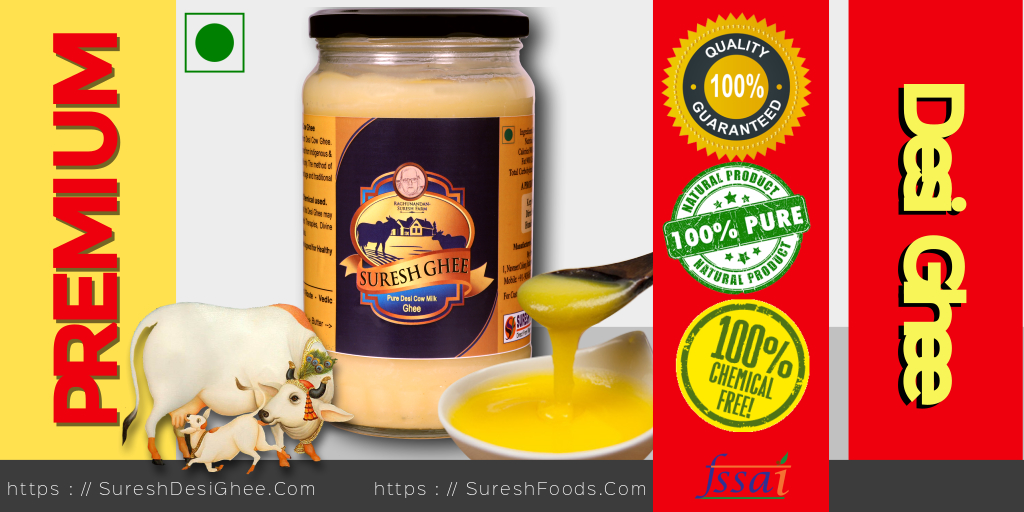
Buy Pure Desi Cow Ghee Online : Order Now. Free Shipping
Read our blog- 8 Reasons You Should Swap Butter for Desi Cow Ghee
A Healing Substance
Cow Ghee is an integral ingredient in Ayurvedic medicine, often used as a fat soluble carrier for nutrients in herbs and other substances. It’s historical list of applications as a medicinal agent is long. It’s used as a moisturizer, an anti-inflammatory, burn salve, and to lubricate/soften hardened tissues throughout the body. It’s even said to increase longevity and ward off disease. Safe to say, the aromatic nature of ghee is a health benefit in and of itself.
On a broad level, grassfed ghee is said to encourage fat metabolism and weight loss due to the high levels of Tonalin CLA, supports stable moods and consistent energy levels, and boosts the body’s natural defenses against harmful bacteria. Ghee is also loaded with essential items like butyric acid, an essential component to a healthy digestive tract. In addition, it includes short-, medium- and long-chain fatty acids (used by the body immediately, as energy), Omega 3 and Omega 9 essential fatty acids; vitamins A, D, E K; plus many more antioxidants and minerals.
The Sacred Fat
Ghee is mentioned in the Bhagavad Gita, the Dharmasutra (an ancient Indian law book), and in the Rig Veda in approximately 1500 B.C.E. In Hindu mythology, ghee was created when Prajapati, the lord of creatures, churned it with his hands, and used it to spawn his own offspring. In short, ghee is tied into the most fundamental acts of creation. There is no doubting ghee’s religious significance, given that nearly all of the most important Hindu ceremonies–from birth through to death. Religious images and statues are even cleaned with ghee, and holy lamps are fueled by it–a well-intended sacrifice enshrined in the immortal lines of the aforementioned sacred text, the Rig Veda:
This is the secret name of Butter:
“Tongue of the gods,” “navel of immortality.”
We will proclaim the name of Butter.
While a significant amount of ghee made and sold in India is made from buffalo milk butter, only ghee made from cow’s butter (must be grass fed!) has religious significance.
Read our blog- Which is healthier, ghee or vegetable oil?
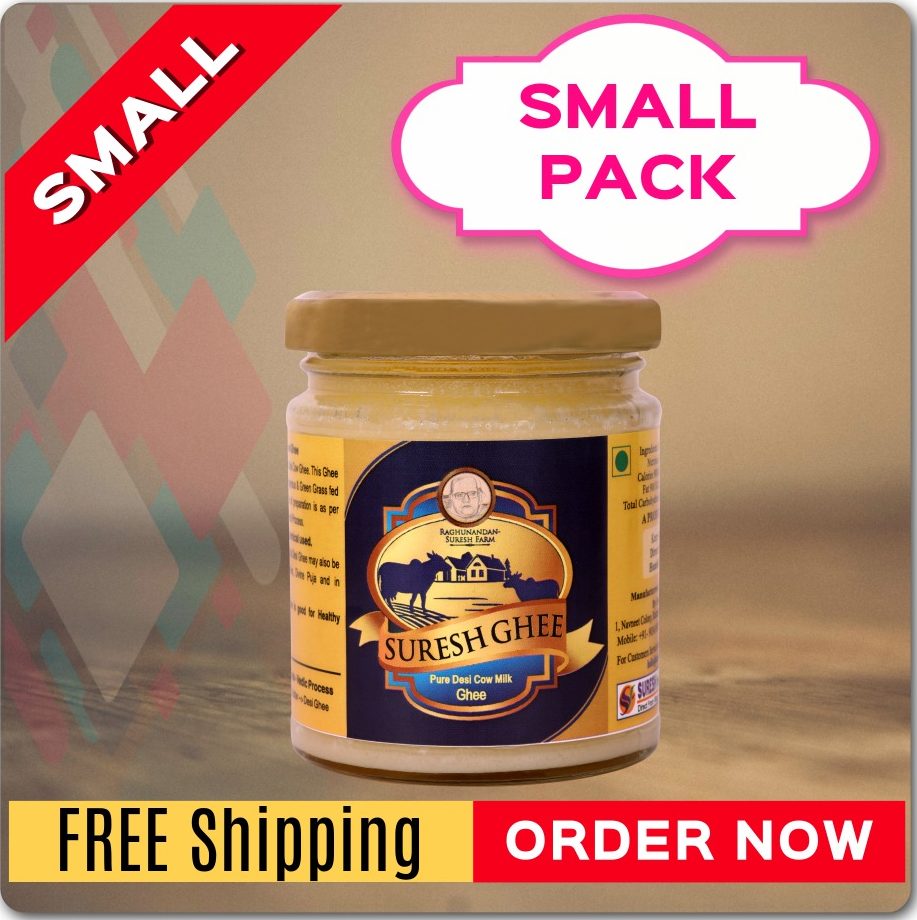
Buy Pure Desi Cow Ghee Online : Order Now. Free Shipping

Benefits Of Cow Ghee
Ghee as a herbal energizer: Ghee helps absorb and transport many of the medicinal properties of herbs and spices to targeted areas of the body. Perhaps this is the reason why Ayurveda uses it in thousands of herbal preparations. You too can fry your kitchen spices in ghee before adding them to your dishes.
Strengthen your digestion and immunity with cow ghee: Ghee has butyric acid which is great for intestinal wall support. It also supports the production of killer T cells in the gut, thus promoting a strong immune system. Ayurvedic physicians have been using ghee for centuries to treat bowel inflammatory diseases. Ghee also stimulates the secretion of gastric acid, aiding the digestive process. So consume ghee for a better digestive system, which equates to better health.
Ghee consumed with Cardamom : Ghee turns out to be a beneficial shield against allergies possessing antibacterial properties that tackles germs causing cough and other various infections.
Consumption : Take 3-4 pieces of cardamom, half spoon rock sugar, and half spoon lukewarm cow ghee twice daily to get relief from a dry cough causing sore throat. A person with diabetes is required to resist rock sugar though.
Ghee with Warm Milk or Water : Ghee helps to absorb the vitamins and minerals from other various ingredients because of the presence of Vitamin K. This strengthens the immune system and during chronic cases of dry cough try having turmeric milk.
Consumption : Consume it with one tablespoon of desi ghee, warm milk, half teaspoon of fine turmeric powder, and powdered sugar if necessary. Stir well and consume. In a few weeks the issue will be resolved. And in case you are lactose intolerant, consider taking lukewarm water instead of milk.
Ghee with Ginger Powder, Turmeric or Jaggery : Ghee not just proves to be a lubricant for a dry nose, but also a good defense against allergies. Efficiently controlling the particles that can prompt allergies.
Consumption : Take a few teaspoons of Ghee, a finely powdered form of dry ginger, turmeric, and jaggery in small quantities and roll them into small laddoos. Consume one first thing in the morning and the last thing before sleep. Such a mixture will decrease symptoms of cold and flu from spreading, boosting immunity, helps in controlling body temperature and keeping the body warm.
As Nasal Drop Therapy : In order to clear the nasal cavity, smearing lukewarm ghee in a clogged nostril can help clear the blockage and remove harmful toxins. A Nasya treatment is known to be an Ayurvedic nasal drop therapy for severe sinus problem and cold. In Nasya treatment, 1-2 drops of lukewarm pure cow ghee produced from unadulterated cow milk are poured into the nostrils first thing in the morning. Make sure to repeat such activity twice daily during severe congestion before bed and after waking up in the morning.
Use cow ghee as a natural moisturizer: Ghee is a great beauty enhancer too. If you are suffering from chapped lips, smear a drop of ghee on them before going to bed. Ayurveda uses cow ghee as a moisturizing agent by mixing it with water and stirring it. The process is repeated several times, and the potion can be stored for up to six months and used regularly.

Ghee for your mind and spirit: Ancient cultures have always maintained that the mind and body are one. This is exactly what modern research has now revealed that negative emotions are chemical in nature. These chemicals are stored in the form of fats. Ghee can replace and pull out these toxins so that they are cleansed out of the system. According to Ayurveda, ghee is a sattvic food – one that promotes growth, positivity and expansion of consciousness.
Ghee for energy and weight management: If you have an active lifestyle or you are an athlete, you can use ghee as a consistent energy source. Ghee is rich in medium chain fatty acids (MCFA), which are absorbed directly by the liver and burned as energy. The energy from these medium chain fatty acids (MCFA) can be used to burn other fats in the system and lose weight.
Lubricates the body, externally and internally:Ghee is a well-known treatment in Ayurveda for relieving dryness in the body, as it is oily and moisturizing by nature. Whether taken internally or applied externally, cow ghee has the ability to nourish and lubricate the tissues on a cellular level. This reduces dry skin, dry colon (constipation), inflammation & stiff joints while increasing luster, flexibility and promoting healthy elimination.
How can you use cow ghee?
- Try using cow ghee to fry onions and garlic when making an Indian curry the aroma and flavour is amazing! Add vegetables such as spinach & cauliflower along with some Indian spices for a quick, flavoursome vegetarian supper.
- Stir fry some vegetables with some ginger & garlic for a flavour-rich Asian side dish.
- Cow ghee is ideal for grilling. Ghee has a high smoke point so it does not burn like butter would at higher temperatures making it ideal to use when grilling or roasting meat, fish or vegetables..
- For a delicious garnish, try quick frying a batch of nuts & seeds in ghee and sprinkle over a dip or soup.
- Substitute cow ghee in any recipe where you’d normally use butter (baking, macaroni and cheese, popcorn, sandwiches, gluten-free toast, etc).

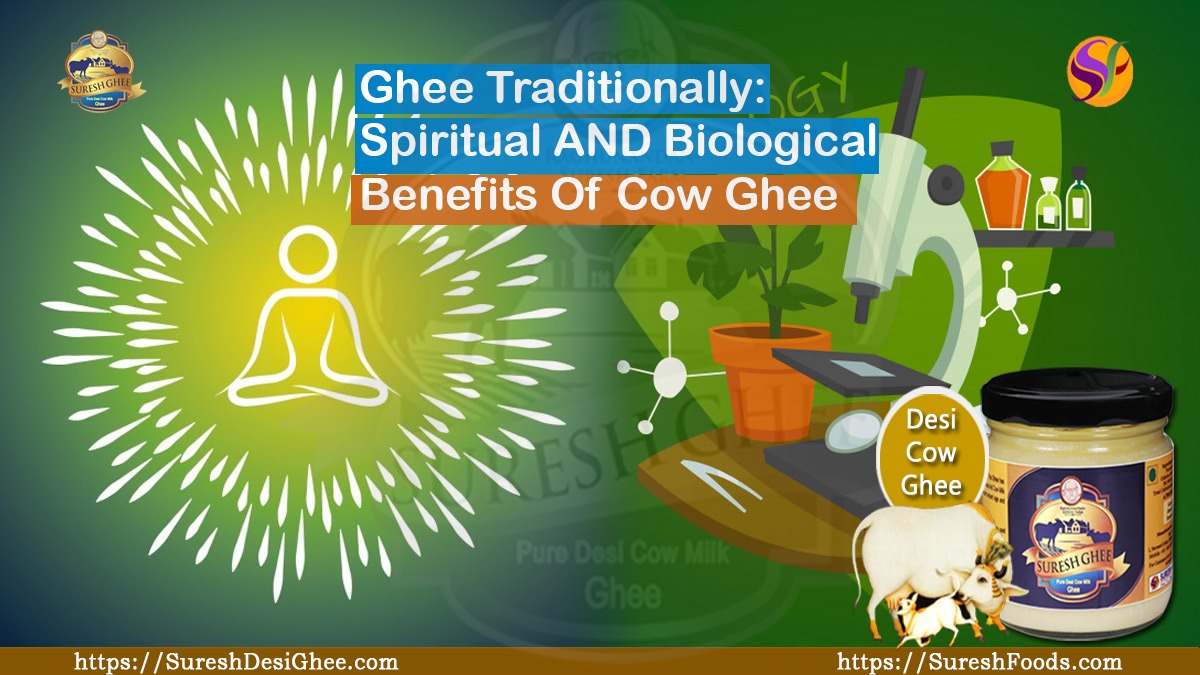
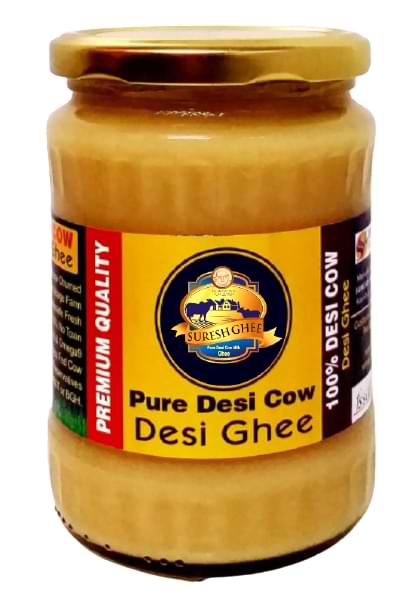
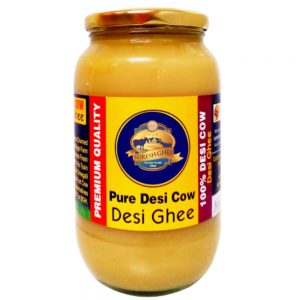
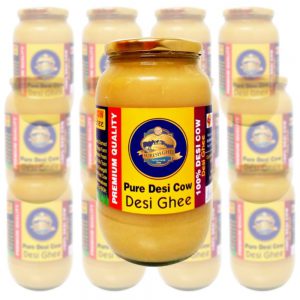
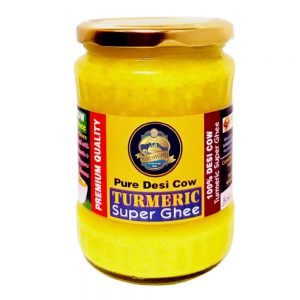
 WhatsApp us
WhatsApp us 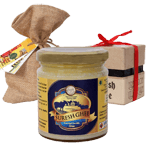
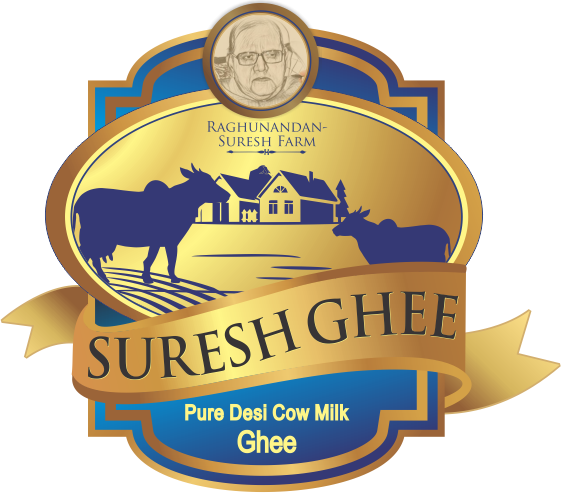
Naveen m...